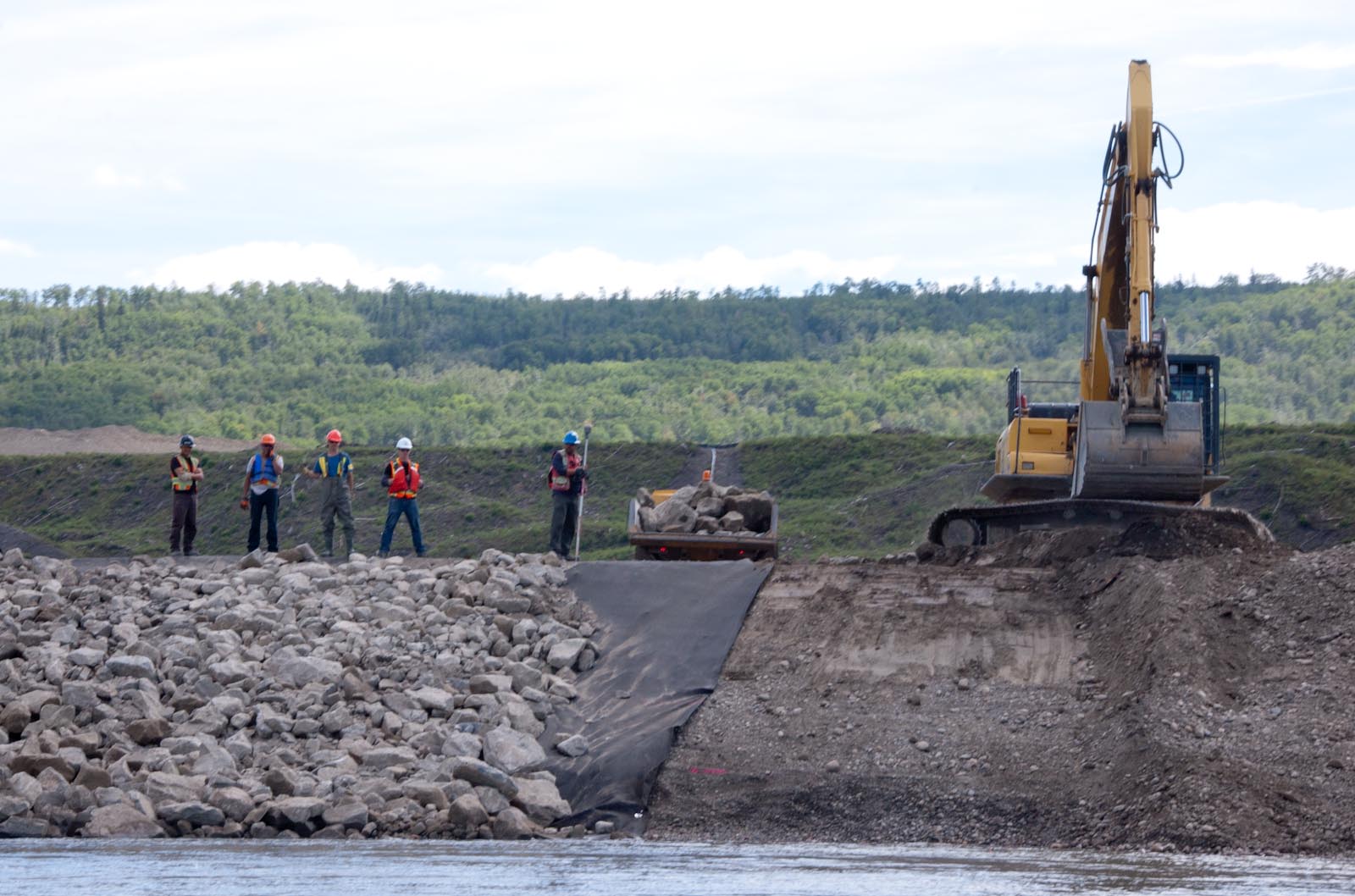Sophie’s Choice: A choice where every alternative has significant negative consequences. — Wiktionary definition
Politics is always about making choices, but what if you are faced with three choices and all of them are bad?
Plus billions of dollars will be spent — or wasted — and many of your supporters will be angry with you, no matter which choice you make.
That’s the uncomfortable position Premier John Horgan will be in after he receives a report Wednesday on whether to complete, scrap or pause construction on BC Hydro’s controversial Site C dam project on the Peace River.
Site C will cost $8.8 billion or potentially much more if completed. But cancelling it outright along with the remediation of construction so far would cost about $3.3 billion without producing a nightlight’s worth of electricity, says the independent BC Utilities Commission.
And energy alternatives for future needs would cost between $1.8 billion and $3.4 billion more, depending on electricity use projections.
Then there’s the third choice of pausing Site C: mothballing the dam as it currently stands to leave the option of restarting construction in 2025 — or cancelling it then. This would cost about $1.4 billion on top of existing “sunk costs” of $2 billion, according to a report from auditing firm Deloitte LLP commissioned by the BCUC.
Most importantly, every option means significantly increasing your BC Hydro electricity bills for years to come.
Those rates were originally projected in 2014 to jump by 28 per cent over five years because of a massive $58 billion in long-term contracts with private power producers signed by the BC Liberals before rate increases were capped before the May election at 10.5 per cent between 2017 and 2019.
“Site C is a genuine and profound dilemma,” energy expert Jim Quail told 175 attendees Friday at a politics and policy conference held by Composite Public Affairs. “And don’t expect that the BCUC will give an easy answer.”
It’s the consequence of the former BC Liberal government absolutely refusing to allow an independent review of Site C by the BC Utilities Commission, a body set up to examine in detail major projects and recommend advice before taxpayer dollars are invested.
There are good arguments both for and against Site C.
Opponents say the project:
- Is way too expensive
- Provides power that isn’t needed
- Is less cost-effective than alternatives like wind, solar and conservation efforts
- Would flood 5,500 hectares of land, including valuable agricultural areas
- Is opposed by First Nations that would see their land under water
- Lays in a geotechnical risky area; already tension cracks have formed in the dam during construction
But dam supporters say Site C:
- Will provide clean, green, renewable energy for over a century — enough power for 450,000 homes
- With the eventual replacement of fossil fuels by clean energy, growing demand for electric vehicles and increasing reliance on electrically powered devices, there is no way B.C. won’t need Site C power
- Can replace Alberta’s coal-fired power plants and other North American electricity produced by fossil fuels
- Is the cheapest it will ever be
- Provides year-round reliable power that can be stored – unlike solar and wind power
Indeed, the BC NDP government will be facing a Sophie’s Choice not of their making, but the consequences will be laid at their doorstep regardless.
The BC NDP’s likely decision will be to hit the pause button despite the costs because BC Hydro’s recently released faulty cost estimates mean continuing the project without further review is simply too financially risky.
And complete cancellation would effectively mean burning more than $2 billion of taxpayer money on the banks of the Peace River, even if ex-premiers Christy Clark and Gordon Campbell were responsible by refusing to have an independent review that might have stopped the project years before construction began.
Stopping Site C would also play into the BC Liberals’ negative narrative that the BC NDP is anti-business and against all resource development, this despite Clark’s broken promise to develop several liquefied natural gas plants exporting billions in energy.
So, the best of three bad options is pausing Site C and continuing an extensive independent review to determine true costs and electricity needs.
Whether Site C is a white knight or a white elephant will remain a question, one not likely answered until after the next provincial election. ![]()
Read more: Energy, BC Politics

















Tyee Commenting Guidelines
Comments that violate guidelines risk being deleted, and violations may result in a temporary or permanent user ban. Maintain the spirit of good conversation to stay in the discussion.
*Please note The Tyee is not a forum for spreading misinformation about COVID-19, denying its existence or minimizing its risk to public health.
Do:
Do not: